In the context of a royal line of succession, the health status of individuals within a family can be crucial when it comes to the continuity of the monarchy.
Just this year, two members of the British royal family revealed that they are currently receiving treatment for cancer.
On March 22, Catherine, Princess of Wales, disclosed that she was undergoing chemotherapy after tests determined that she had cancer.
The announcement came nearly two months after Buckingham Palace revealed that her father-in-law, King Charles, 75, is being treated for cancer. Palace officials shared that tests detected “a form of cancer” after the monarch underwent a hospital procedure for benign prostate enlargement and a “separate issue of concern” was found by doctors. Subsequent tests identified a form of cancer.
The news soon brought attention back to the line of succession, which has undergone various shifts since Charles' ascension.
According to the royal family's website, the rules of order have been determined by both descent and Parliamentary statute since the 17th century. However, the rules around succession have been altered over time. Changes to guidelines and the births of new family members have also affected who is in line.
In the 2010s, the Succession to the Crown Act equalized the rights of sons and daughters in the British royal line of succession, meaning male heirs were no longer entitled to pass daughters in line to the throne.
Here's a closer look at the royals and their current place in line to the throne.
King Charles III — monarch
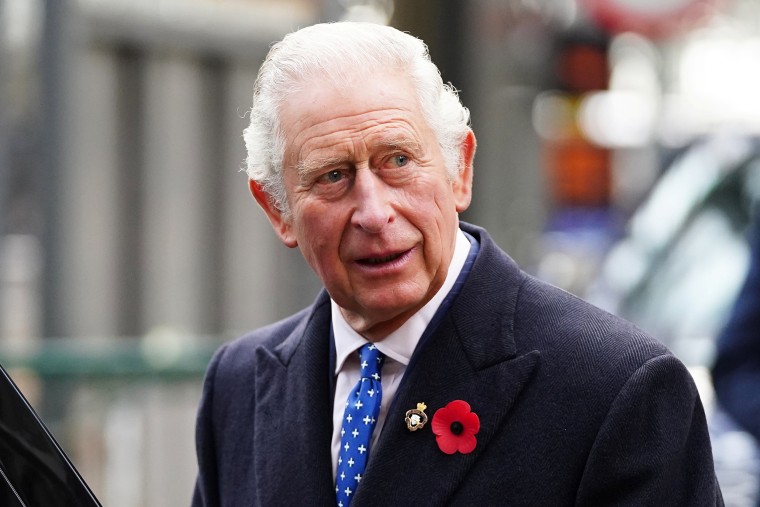
Charles ascended as king after his mother, Queen Elizabeth II, died in September 2022, and his coronation ceremony was held in May 2023.
As Elizabeth's oldest child, Charles had been at the very front of the line of succession since his birth in 1948. After being named heir apparent in 1952 following his mother becoming queen, Charles obtained many titles.
In addition to being the Prince of Wales, Duke of Cornwall, and Duke of Rothesay, among other titles, he became the Duke of Edinburgh after the death of his father, Prince Philip, in April 2021. Shortly after his mother's death, a spokesperson for the king told TODAY that he would be King Charles III.
As a royal family member and son of the queen, Charles has spent a great deal of his life in the public eye. His marriage to Princess Diana — whom he married on July 29, 1981 — garnered international attention and then ire when his affair with Camilla Parker Bowles came to light.
Camilla, queen — monarch's spouse
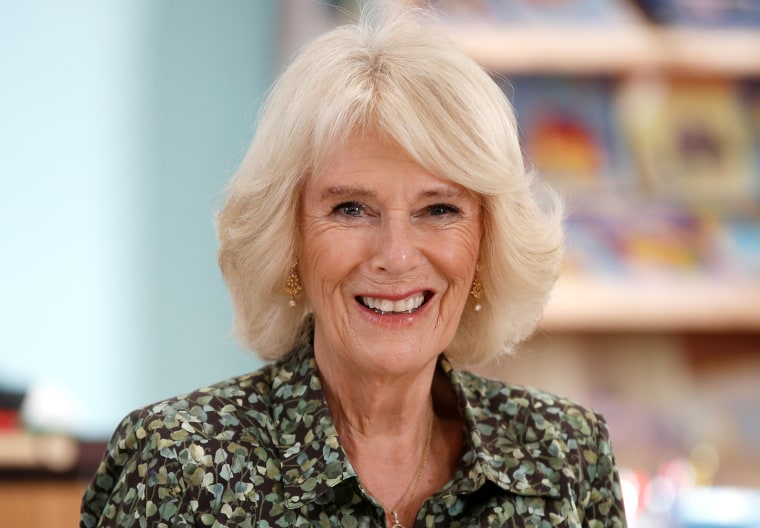
In May 2023, the official palace website changed Camilla's title from queen consort to queen.
It took time for the public to warm up to Camilla for her part in the dramatic royal love triangle that dominated headlines in the '80s and '90s.
Eventually, Camilla began to gain public approval. In April 2005, the two were married, and she became Camilla, Duchess of Cornwall.
Though Camilla is not in the line of succession, Elizabeth determined in February 2022 that Camilla would become queen consort when Charles takes the throne. As mentioned, she is now listed as queen.
Prince William — 1st in line of succession
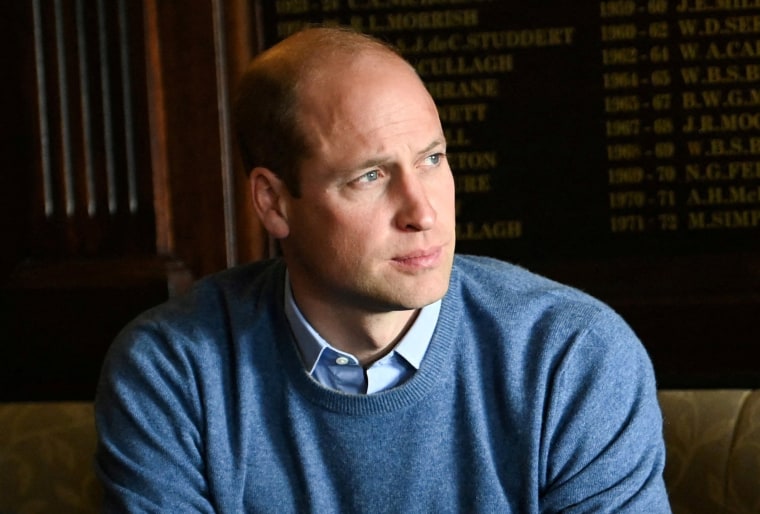
Born on June 21, 1982, Prince William is Charles and Diana's firstborn child, which makes him first in line to the throne. His marriage to Kate Middleton, with whom he has three children, was an all-out royal event viewed live by tens of millions around the globe. Upon their marriage, William was made Duke of Cambridge and Kate became the Duchess of Cambridge.
Will and Kate's titles, however, changed following Elizabeth's death and Charles' ascension. They're now the Prince and Princess of Wales, titles held for the heir apparent.
Today, William performs various royal duties on behalf of the monarchy.
Prince George — 2nd in line of succession
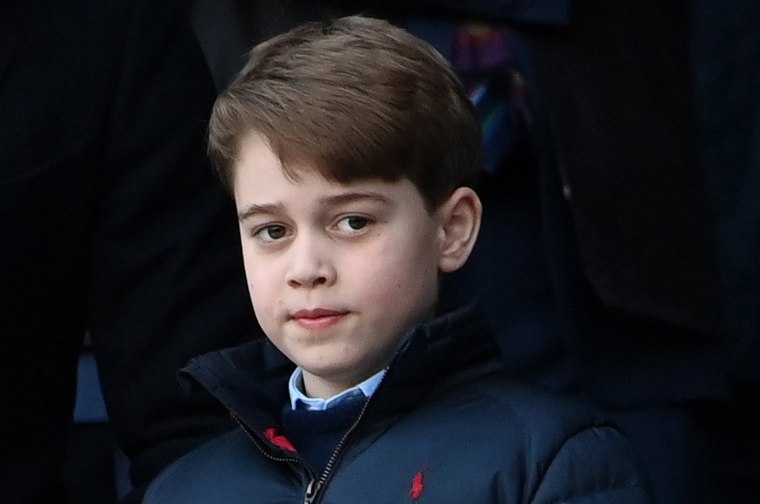
Born George Alexander Louis on July 22, 2013, the 10-year-old prince is the oldest child of William and Kate, making him second in line to the throne. His rank in the line of succession means that he will likely become head of the British monarchy one day.
George has been hailed as a style icon for children. A 2017 piece by Vogue highlighted his influence on children’s clothing sales as a 4-year-old, noting how “anything Prince George wears, we will see demand for those items increase quite considerably.”
Princess Charlotte — 3rd in line of succession
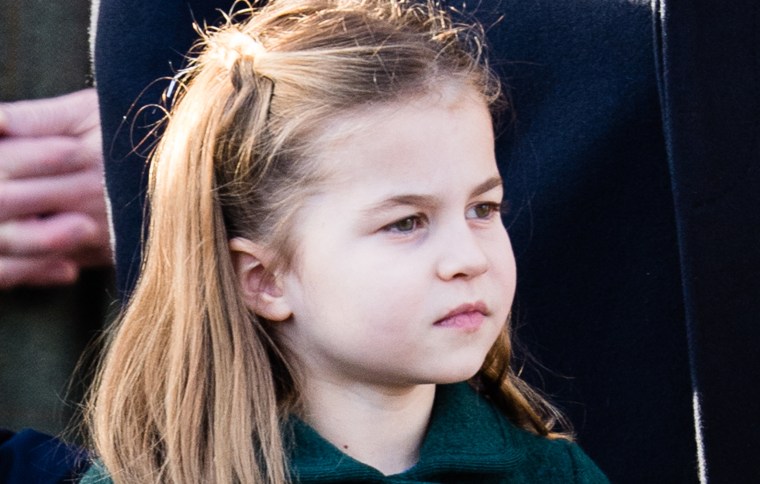
Named after her great-grandmother, the queen, as well as her late grandmother, Diana, Charlotte Elizabeth Diana was born on May 2, 2015. The young princess is third in line to the throne, and because of the Succession to the Crown Act, she became the first female in the royal family to not be moved down the line of succession after the birth of her younger brother.
Prince Louis — 4th in line of succession
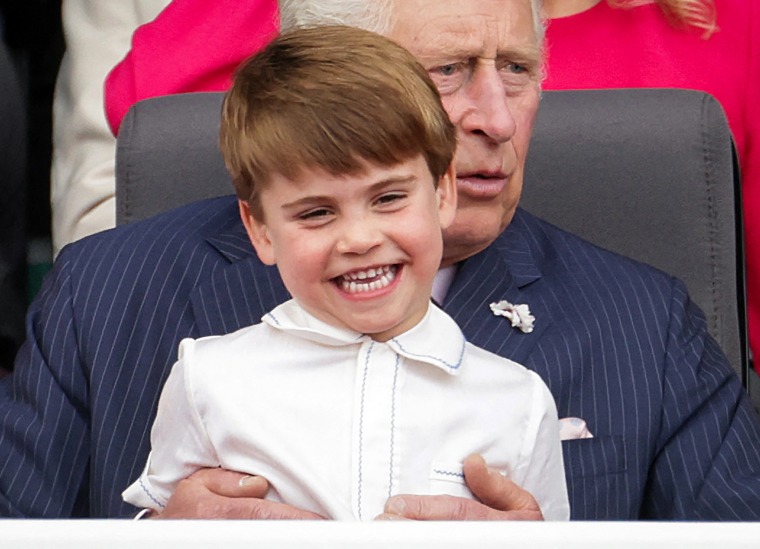
Louis Arthur Charles was born on April 23, 2018, and is the youngest child of the Prince and Princess of Wales. As mentioned above, his rank in the line of succession is a major milestone of the modern age and equality for women as he stands behind his older sister, Charlotte.
Louis has become known for making funny faces (even at the coronation) and made his first official royal appearance in May 2023.
Prince Harry, Duke of Sussex — 5th in line of succession
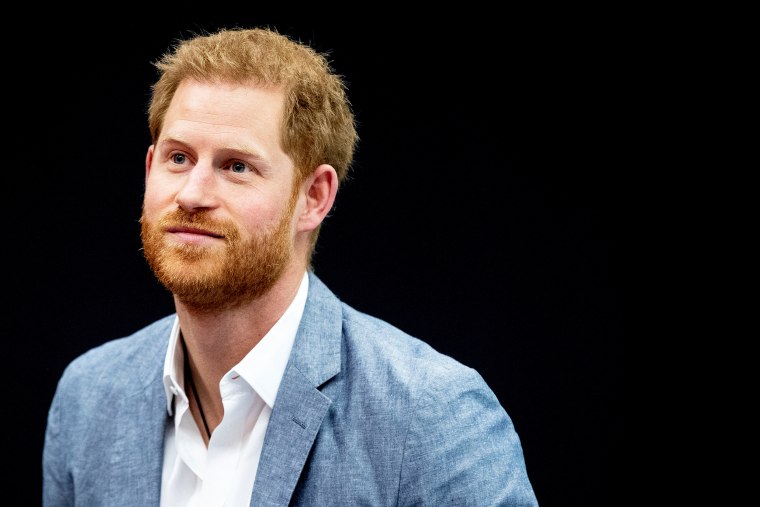
As the youngest son of Charles and Diana, Prince Harry, known as the Duke of Sussex on the royal family's official website, has slowly been moved down the line of succession with the birth of each of his older brother’s children. As of 2024, he is fifth in line to the throne.
In 2018, Harry and Meghan Markle's royal wedding was a global sensation, with nearly 30 million American viewers tuning in, according to Deadline. Meghan became the second American to ever marry into the British royal family, and after the wedding, she became the Duchess of Sussex.
Two years later, the increasing media scrutiny of Meghan and the couple's every move came to a head. In January 2020, Harry and Meghan announced that they would “step back” from their royal duties, which they officially confirmed in February 2021. Today, they live in Montecito, California.
In May 2023, the couple endured a "near catastrophic car chase," according to a spokesman for them, after the paparazzi followed them in New York City. Harry has also continued to speak out against the paparazzi.
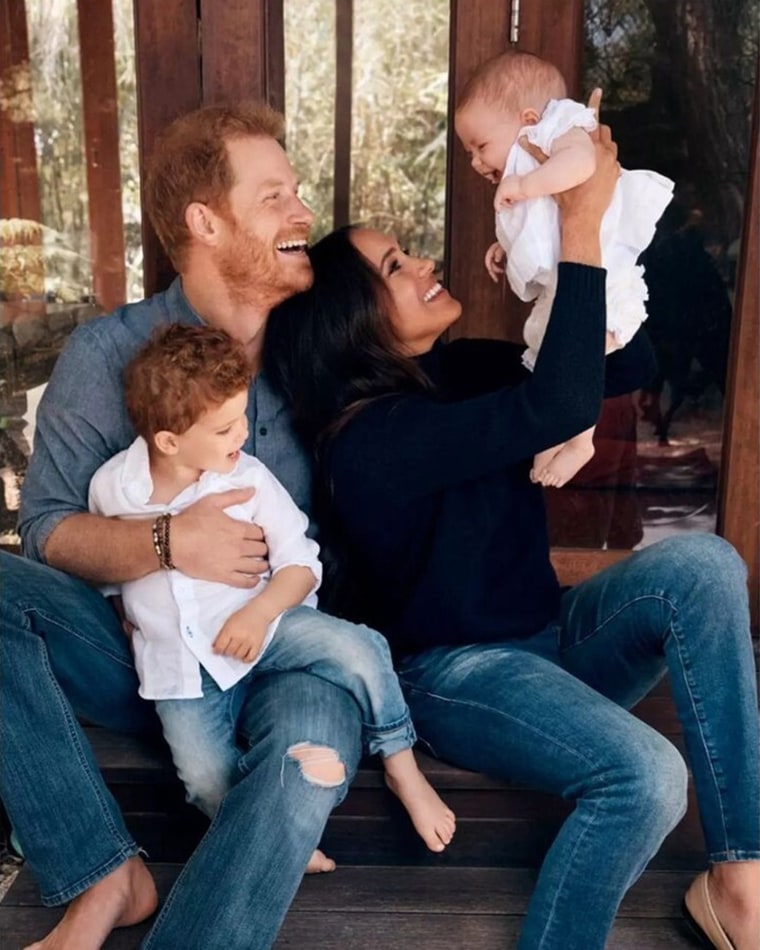
Prince Archie — 6th in line of succession
Archie Harrison Mountbatten-Windsor, the eighth great-grandchild of Elizabeth, and son of Harry and Meghan, was born on May 6, 2019, and is sixth in line to the throne. In 2023, he and his younger sister, Lilibet, received prince and princess titles.
Princess Lilibet — 7th in line of succession
Archie's sister is the 11th great-grandchild of Elizabeth. Lilibet Diana Mountbatten-Windsor was born on June 4, 2021, to Harry and Meghan. Like Charlotte, Lilibet’s name is a nod to both her great-grandmother and grandmother. Instead of “Elizabeth,” however, Lilibet’s name was inspired by the queen’s childhood nickname.
Prince Andrew, Duke of York — 8th in line of succession
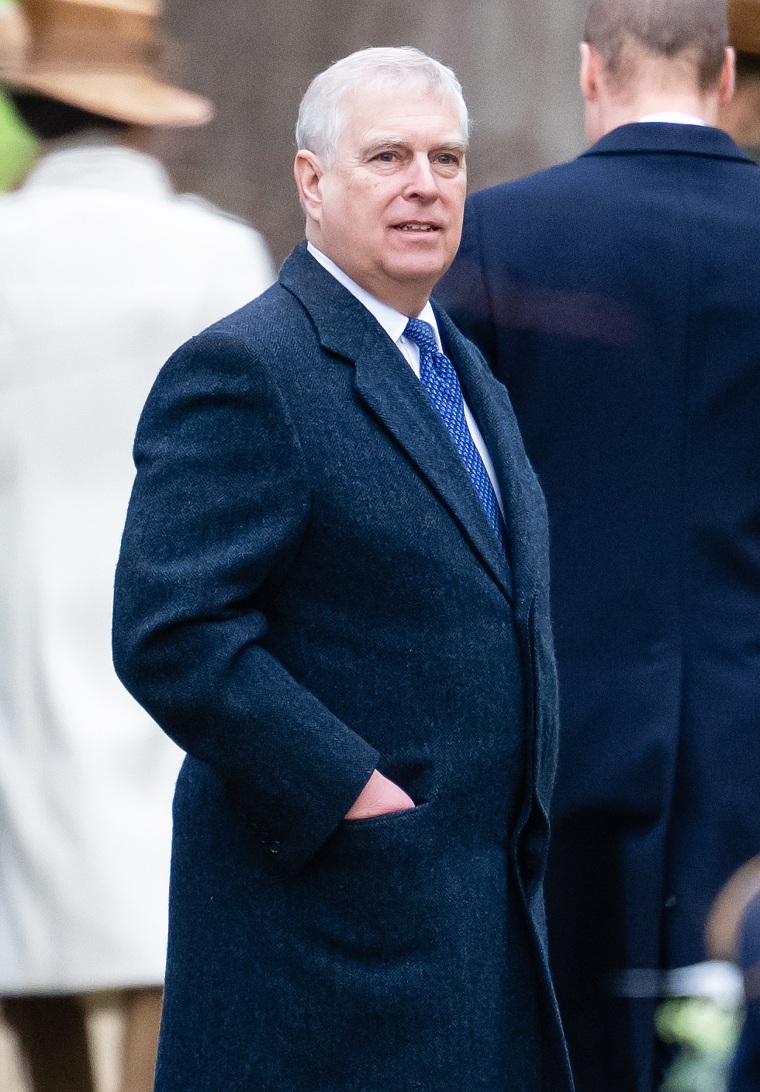
Prince Andrew, Duke of York, was born to Elizabeth and Philip in February 1960. The third of their children together, he went by the title Prince Andrew until 1986, when he married Sarah Ferguson. After his wedding that year, the queen gave him the title the Duke of York. Andrew and Ferguson had two children together, Princess Beatrice and Princess Eugenie, before divorcing in 1996.
In January 2022, Andrew’s role within his family changed drastically amid allegations of sexual misconduct and speculation around his connection to the charged sex offender Jeffrey Epstein. He was stripped by his mother, the queen, of his military affiliations and Royal patronages. According to the official website of the British Royal Family, his standing in the line of succession remains unaffected.
Princess Beatrice, Mrs. Edoardo Mapelli Mozzi — 9th in line of succession
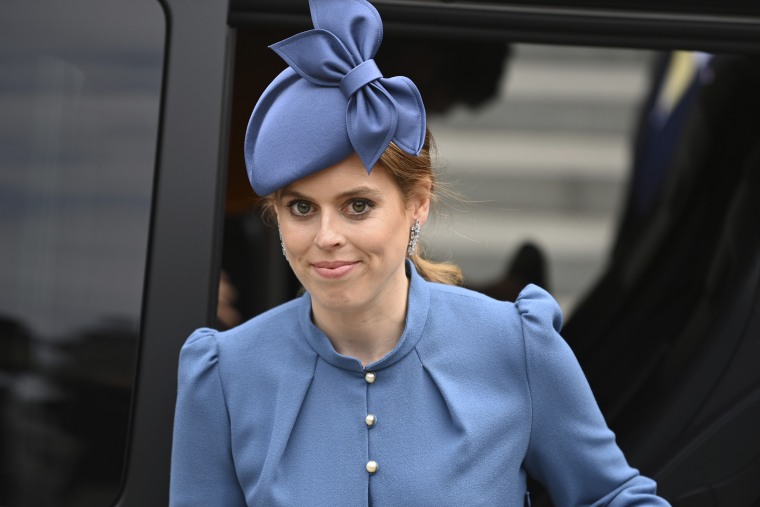
Princess Beatrice is the eldest child of Andrew and Ferguson and one of Elizabeth’s granddaughters. In 2020, she married Edoardo Mapelli Mozzi — an interior designer of Italian nobility.
With her husband, Beatrice has a stepson (Christopher Woolf) and a daughter named Sienna Elizabeth Mapelli Mozzi, whom she gave birth to in September 2021.
Miss Sienna Mapelli Mozzi — 10th in line of succession
Sienna Mapelli Mozzi was born to her mother, Beatrice, in September 2021.
“We are delighted to share that we have named our daughter Sienna Elizabeth Mapelli Mozzi,” the announcement of her birth shared to X, the platform formerly known as Twitter, reads in a post shared by Beatrice in October of that year.
Princess Eugenie, Mrs. Jack Brooksbank — 11th in line of succession
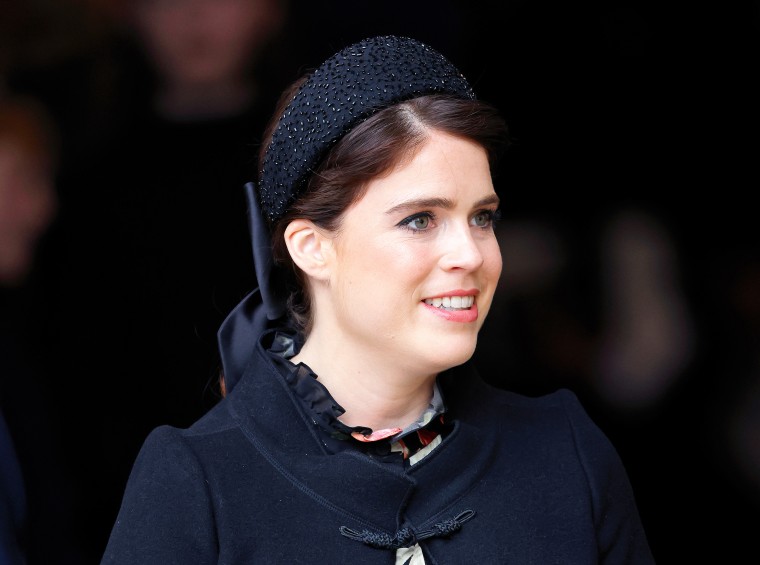
Princess Eugenie is the second and younger daughter of the Prince of York. She was born in March 1990. In 2018, she married her longtime boyfriend, Jack Brooksbank. Together, they have two sons, August Philip Hawke and Ernest George Ronnie.
August Philip Hawke Brooksbank — 12th in line of succession
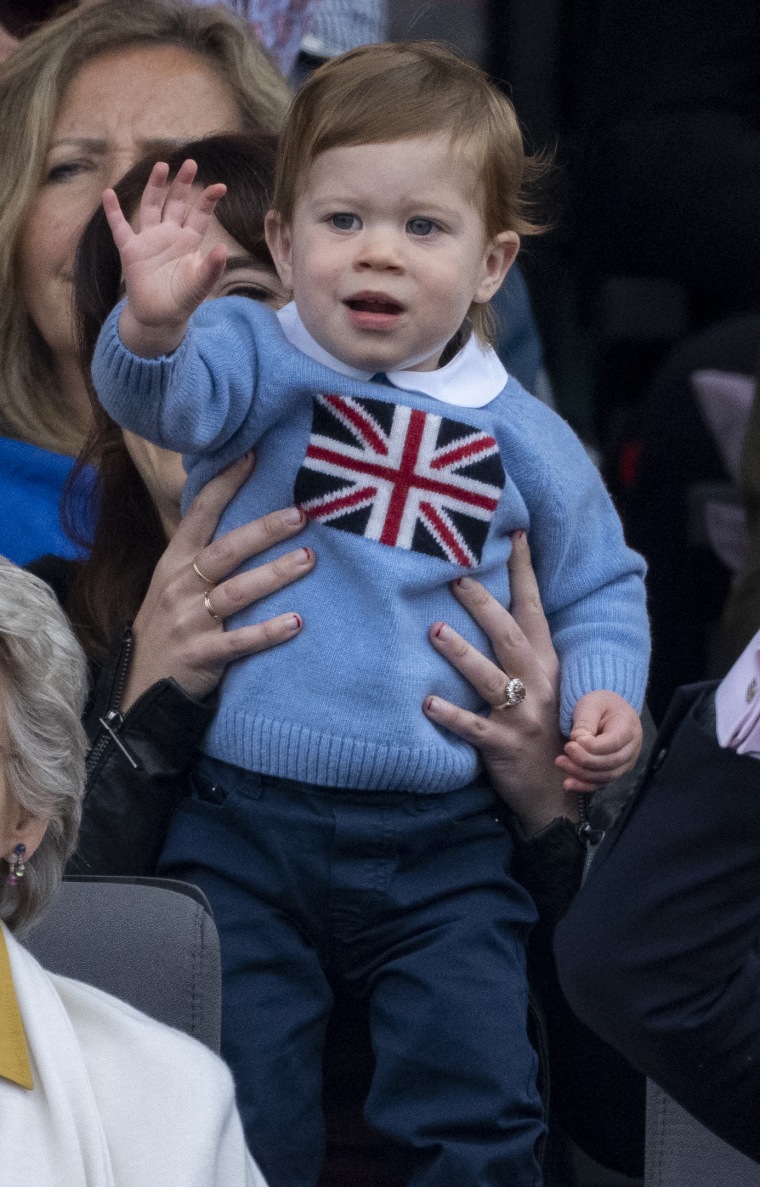
August Philip Hawke Brooksbank is the eldest son of Eugenie and her husband. He was born in February 2021. One year later, he made his first public appearance during his great-grandmother's Platinum Jubilee Pageant.
Ernest George Ronnie Brooksbank — 13th in line of succession
Ernest George Ronnie Brooksbank is the second son of Eugenie and her husband and was born on May 30, 2023. In Eugenie's Instagram announcement of her son's birth, she noted that he was named after his "great great great Grandfather George, his Grandpa George and my Grandpa Ronald."
